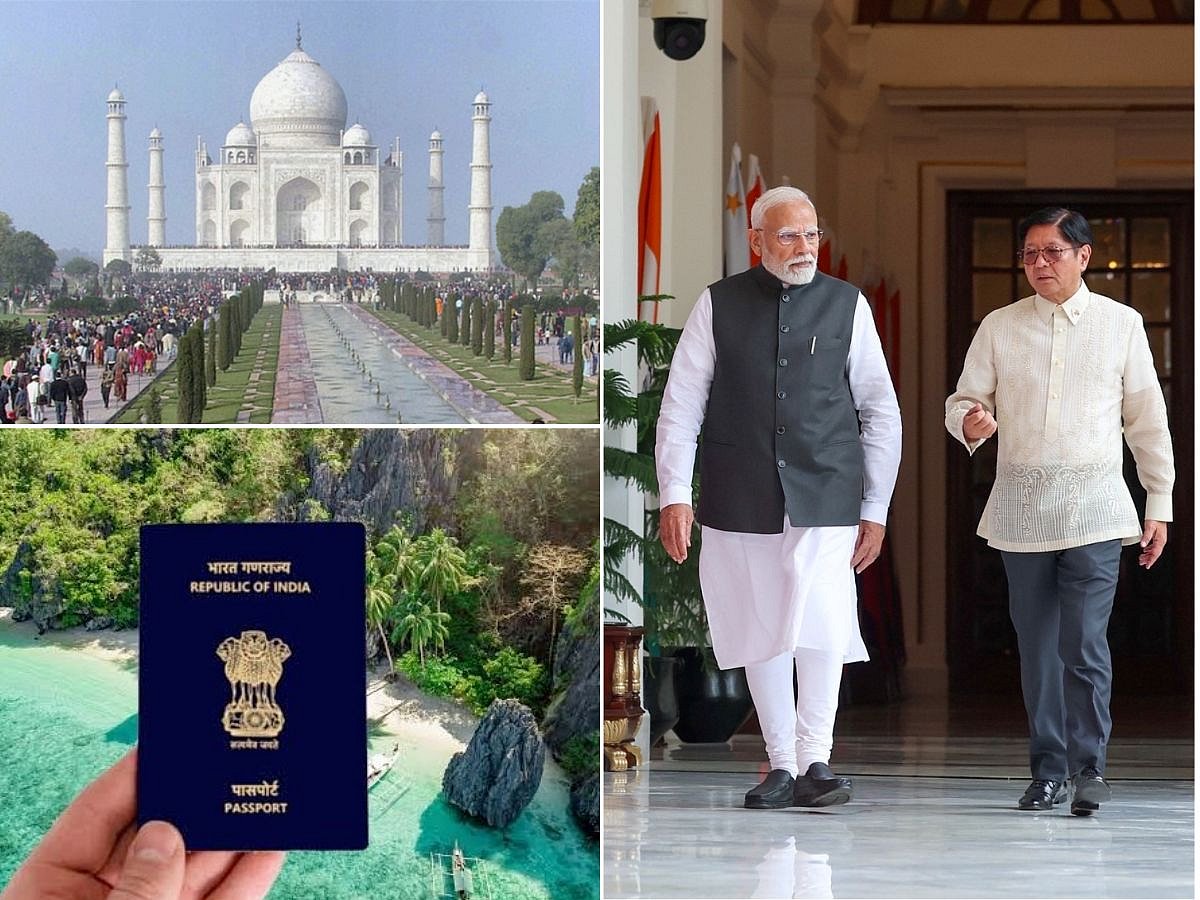Visa-free travel: India, Philippines unveil mutual visa waivers, what you need to know
Indian PM Modi, President Marcos seal stronger ties with visa waivers, direct flights

Manila: Indian Prime Minister Narendra Modi and Philippine President Ferdinand Marcos Jr. have marked a significant milestone in India-Philippines relations, elevating their bilateral ties to a strategic partnership.
This development comes as both nations celebrate 75 years of diplomatic relations, aiming to deepen cooperation across various sectors, including defence, trade, and tourism.
What is the visa-free component of the bilateral agreement?
The visa-free entry for Indian tourists to the Philippines, effective from June, is a reciprocal gesture following Manila's decision to grant similar privileges to Filipino tourists visiting India.
The visa-free component of the bilateral agreement between the Philippines and India, effective June 8, 2025, allows Indian nationals to enter the Philippines without a visa for tourism purposes for up to 14 days.
The entry is non-extendible and non-convertible, meaning it is strictly for short-term tourism visits. Indian visitors must present a passport valid for at least six months beyond the stay, confirmed hotel accommodations, proof of financial capacity, and a return or onward ticket.
Additionally, Indian nationals holding valid visas or residence permits from countries such as the US, Japan, Australia, Canada, Schengen, Singapore, or the UK may enter the Philippines visa-free for up to 30 days under similar conditions.
In reciprocation, the Philippines granted visa-free entry for Indian tourists for 14 days starting earlier in 2025.
What is the aim behind these mutual visa waiver moves?
It's a game-changer.
This move is expected to significantly boost tourism, with India already seeing a 12% increase in arrivals to the Philippines in 2024, reaching nearly 80,000 visitors.
The introduction of free e-visas for Filipinos and the planned launch of direct flights between Delhi and Manila by October 2025 further underscore the commitment to enhancing people-to-people connections.
Beyond tourism, what does India-Philippines the agreement cover?
This partnership is not just about tourism; it reflects broader strategic interests.
Both countries share concerns over China's assertive actions in the South China Sea, prompting closer maritime cooperation.
The joint naval exercises conducted recently highlight their alignment on regional security issues.
Additionally, the agreement on defense technology, including the supply of BrahMos missiles to the Philippines, strengthens their military ties.
How will it boost people-to-people ties?
Culturally, the initiative aims to foster greater understanding and exchange, with plans for regular cultural programmes and educational collaborations.
The Indo-Pacific region, a focal point of global geopolitics, benefits from this enhanced cooperation, promoting a rules-based order and stability.
As India pursues its "Act East Policy", the Philippines becomes a crucial partner, reinforcing India's role in Southeast Asia.
This strategic partnership, announced during Marcos's state visit, signifies a new era of collaboration, promising economic growth, security, and cultural enrichment for both nations.
The mutual visa waivers and direct flights are practical steps towards realising these ambitions, making travel easier and fostering stronger bilateral ties.
Philippine universities have actively participated in major education events in India, such as the Global Education Conclave 2025 held in Mohali, India.
Leaders from Philippine institutions like Western Philippines University (WPU) and Eastern Visayas State University (EVSU) took part in panel discussions focusing on global collaboration for sustainability, research, and innovation in education.
As part of the broader Philippines-India Strategic Partnership established in 2025, both countries agreed to deepen cooperation in educational programmes and people-to-people exchanges.
This includes expanding academic collaborations, scholarship courses offered by Indian councils (like the Indian Council of Cultural Relations), student and media exchanges, and joint capacity-building efforts such as the Indian Technical and Economic Cooperation (ITEC) programme.
Science, technology, and innovation
The 2025–2028 roadmap for cooperation between the two nations highlights strengthening joint research and development activities, innovation sharing, and capacity building in science and technology fields.
This includes collaboration between their respective science and technology departments, and fostering cooperation in areas like geospatial science, space science, and digital technologies that support education and research.
Sign up for the Daily Briefing
Get the latest news and updates straight to your inbox
Network Links
GN StoreDownload our app
© Al Nisr Publishing LLC 2026. All rights reserved.